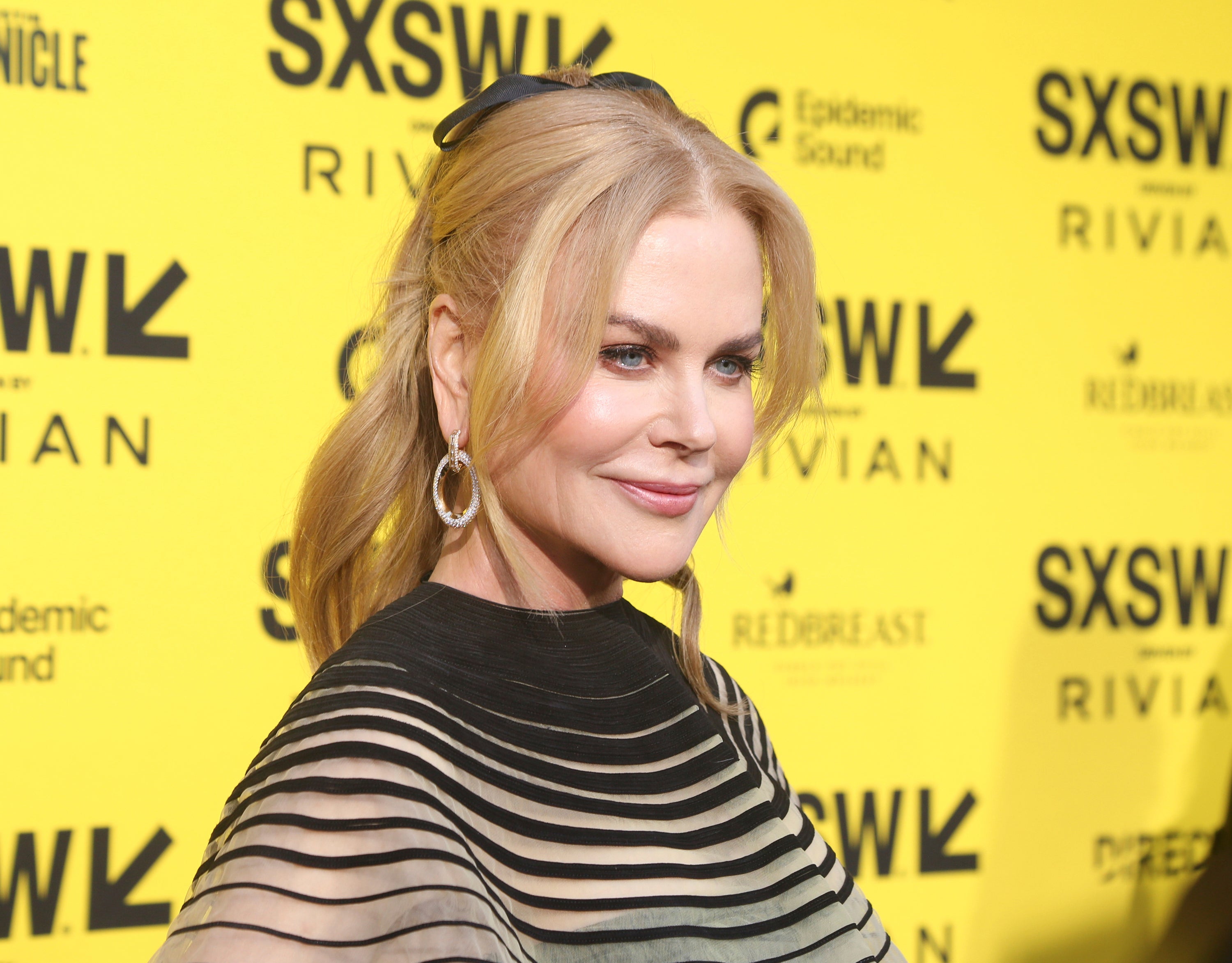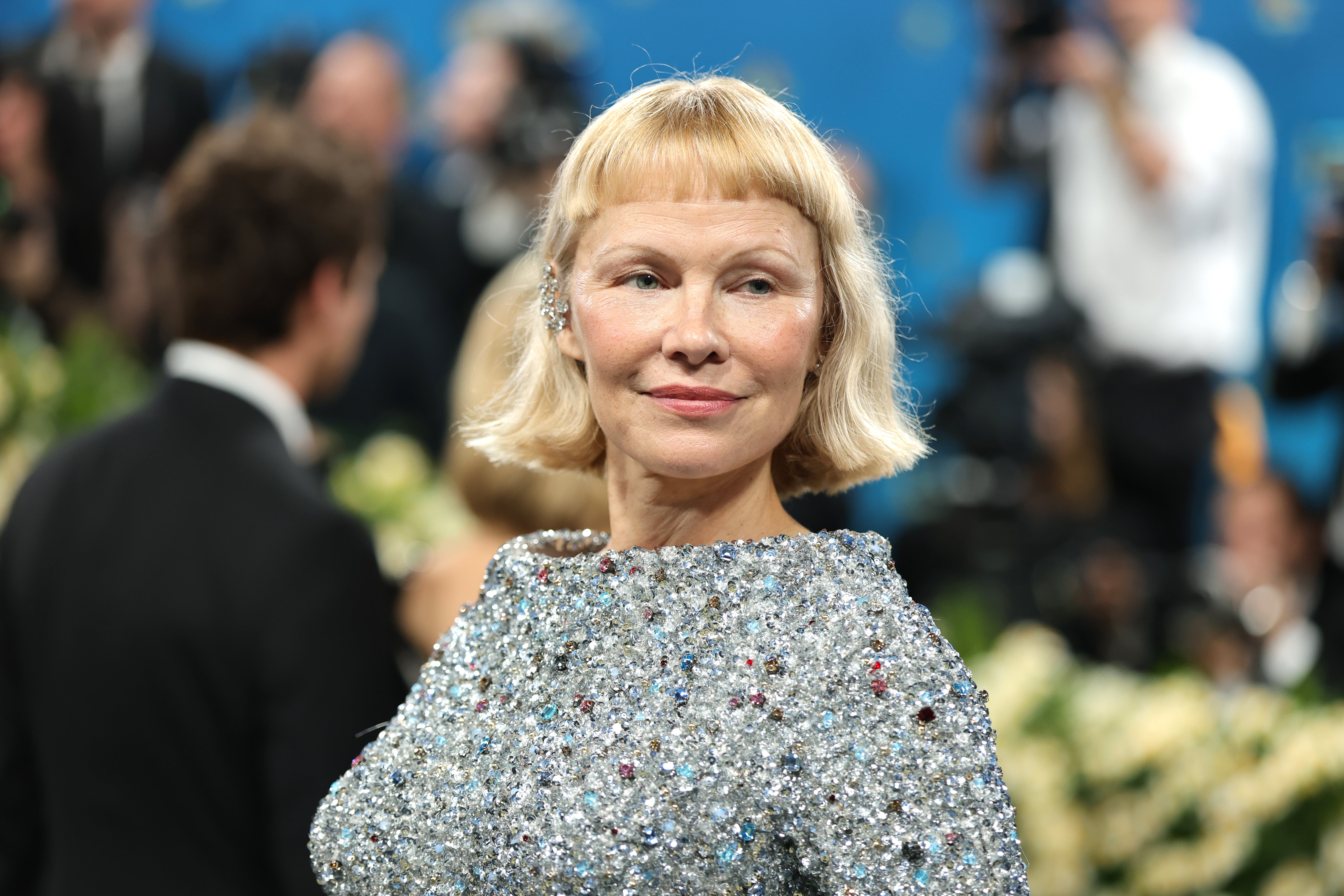Katie Piper is right, ageing as a woman is like a bereavement – but most of us are stuck in the denial phase of grief
The presenter and campaigner has said that women have to come to terms with ‘ageing out of the male gaze’. But that’s becoming increasingly difficult in a world shaped by female celebrities who point-blank refuse to get any older, writes Helen Coffey

Age is just a number”, goes the old adage. The new version should perhaps come with an addendum: “Age is just a number – but one that your face and body should never reflect.”
It was the recent words of presenter and activist Katie Piper that prompted this musing on our collective endeavour to erase the visible passage of time. “Ageing can be compared to a bereavement,” the Loose Women panellist said at this year’s Hay Festival while promoting her new book, Still Beautiful: On Age, Beauty and Owning Your Space. “Sometimes we know we’re losing somebody or something, and it’s slow, it’s gradual – and when it’s ageing, we look down at our hands, we see they look different. We catch ourselves in the shop window, and everything’s changed.”
The 41-year-old’s sentiments hit a nerve. I’m 38, a mere slip of a girl, surely, and yet I’ve already started having those out-of-body experiences – suddenly seeing a photo of myself taken from an unexpected angle and thinking, “Who’s she? That middle-aged woman with the chins and the deeply etched eye bags?” Or catching a glimpse in the mirror, brought up short by the marching silver threads that can never be beaten back no matter how often I dye my hair, because there’s always more, more, more – a never-ending onslaught of grey to remind me that I’m getting older by the day.
Piper, who has had to endure multiple surgeries to repair her face and eyesight ever since she was the victim of an acid attack orchestrated by an ex-boyfriend in 2008, has a very different relationship with her appearance compared to most of us. “Women age out of the male gaze,” she said frankly. “I was ripped from the male gaze at 24. I didn’t just become invisible. I became a target for people saying derogatory things.”
Her devastating experience taught Piper early on about “the currency and the power a woman holds when she is considered either beautiful or young”. Her “conventional” beauty was sadistically stolen from her nearly two decades ago; as she has come up against the next turning point, when a woman has to say goodbye to her youth, Piper has refused to see it as a loss of power. “What if ageing is the magic key to letting go of other people’s expectations and truly starting to live how we want to live?” she writes in her book.
It’s a vital, empowering message – that ageing out of the pressure to look perfect and gorgeous and, above all else, fresh-out-the-box, should actually be our “heyday”, as Piper labels it. But alas, very few women in the spotlight appear to be subscribing to this way of thinking. The reality is, everywhere you look, women are point-blank refusing to engage with the “bereavement” of ageing; instead, they’re locked into a relentless quest to freeze time and, increasingly, reverse it.
This endeavour is nothing new. Though the modern iteration of “anti-ageing products” can have been said to start in the first half of the 20th century, with the likes of Elizabeth Arden and Holly Rubinstein creating a mass market for their “rejuvenation” treatments, go back a few centuries and you’ll find Elizabethan women putting raw meat on their faces to turn back the clock. Travel further, to the first century BC, and Cleopatra was famously taking daily donkey milk baths for the same purpose. Hankering after youth and beauty is clearly hardwired into the human experience, the physical manifestation of our innate fear of death.
But what has changed is the advancement of the technology to facilitate this age-old pursuit, and the extreme makeovers that are now being positioned by female celebrities as the gold standard towards which we should all be secretly striving. Or should that be “make-unders” – as in, make this 60-year-old look underage, please?
The most recent example to send shockwaves around the aesthetics world is Kris Jenner and her time-defying facelift. The woman is 69, but you’d never know that from her brand new £100,000 face. Rumoured to be her fifth surgery, and also rumoured to be a “deep plane facelift” – because God forbid one of these women ever actually admit to what they’re having done – the op has left her plump-cheeked, smooth-skinned and, ultimately, looking like an uncanny valley version of her daughter, Kim Kardashian. It’s utterly mesmerising, the intricate artistry of someone who’s arguably more wizard than plastic surgeon.

Though Jenner is on one end of the spectrum – and perhaps feels like such measures are a prerequisite for being the matriarch of the nip-and-tuck-happy Kardashian dynasty – you don’t have to look very far to see examples of Benjamin Buttons everywhere. Demi Moore, who has denied having various cosmetic procedures in the past, has fewer wrinkles at 62 than she did 20 years ago. Nicole Kidman has a face so taut it doesn’t seem humanly possible that it’s seen 57 trips around the sun. Again, the actor has denied having any major cosmetic work done, saying she tried Botox and didn’t like it – her eerie defiance of the passage of time is, apparently, a result of religious suncream application and a proper skincare routine. Ha! Sure it is, Nicole.
You only have to see a woman of the same age who hasn’t had fillers, Botox or a new visage surgically stretched and stitched on to feel sceptical of the idea that slapping on some factor 50 is enough to cryogenically freeze someone’s entire face and body. Take Sarah Jessica Parker, now 60 – she looks good for her age, but not impossible for her age. She has laughter lines, crow’s feet, forehead creases – each telling a story about a life well lived.

Then there’s Pamela Anderson, 57, our surprising new patron saint of au naturelle beauty. Her makeup-free face is a beacon of glowing good health, her faint wrinkles a testament to the decision to ditch Botox and stop the exhausting, never-ending pursuit of youth at any cost.
Of course, all of this is a choice. Women can do whatever they want with their bodies. But it’s difficult for the rest of us not to compete, not to feel like we’re constantly falling short in an invisible race to turn back the years, by simply having the audacity to physically age. It’s hard to embrace our changing appearances when so many in the media seem eternally preserved in a Dorian Gray-style timewarp. And it’s nigh-on impossible to convince the younger generation – our daughters, granddaughters, nieces – that they don’t need to be filling their faces with injectables at 20 or starting anti-ageing regimes in their teens when every bit of messaging tells them that the biggest crime a woman can commit is getting old.

There’s been a huge rise in young people getting tweakments like “preventative” or “baby” Botox; one in seven (13 per cent) Brits aged 25 to 34 have had it done, compared to a national average of 7 per cent, according to data from global research firm Mintel.
“It makes you in control of your own destiny,” Piper said of embracing, rather than shunning, ageing. “And that scares some people, because if we are no longer insecure, if we’re confident, if we’re not chasing something unpaid, what can they sell to us? What overpriced cream and diet and contraption will we spend our money on?” What indeed.
When we prize youth as the only thing worth having, we devalue the much more worthwhile gifts of wisdom and experience. When we strive to stay the same, we deny the much more rewarding path of evolution and growth. Ageing may well be a bereavement – but if it is, we have to start moving out of the denial phase of grief if we’re ever going to reach acceptance.
Join our commenting forum
Join thought-provoking conversations, follow other Independent readers and see their replies
Comments